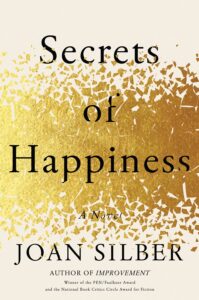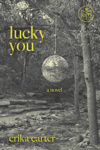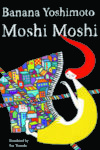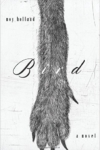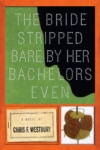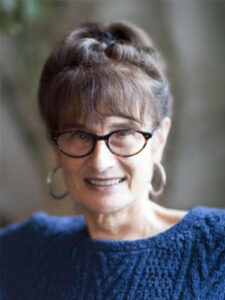 Joan Silber’s fiction has a way of feeling intimate and expansive at the same time. Since her National Book Award-nominated Ideas of Heaven (2004), Silber’s preferred form has been a novel composed of chapters that focus on different central characters. Each character first appears a minor player, then becomes the protagonist of the proceeding chapter. This style allows for an immensely sympathetic and curious view of humanity. Her latest work, Secrets of Happiness, is no different. Secrets is a decade-covering, continent-jumping saga, beginning and ending with Ethan, a gay man who discovers that his father, Gil, is harboring a secret second family. The characters are literally connected by shared acquaintances. But, more importantly, they are bound by a common struggle for personal growth against the forces of money, familial obligation, and luck.
Joan Silber’s fiction has a way of feeling intimate and expansive at the same time. Since her National Book Award-nominated Ideas of Heaven (2004), Silber’s preferred form has been a novel composed of chapters that focus on different central characters. Each character first appears a minor player, then becomes the protagonist of the proceeding chapter. This style allows for an immensely sympathetic and curious view of humanity. Her latest work, Secrets of Happiness, is no different. Secrets is a decade-covering, continent-jumping saga, beginning and ending with Ethan, a gay man who discovers that his father, Gil, is harboring a secret second family. The characters are literally connected by shared acquaintances. But, more importantly, they are bound by a common struggle for personal growth against the forces of money, familial obligation, and luck.
We spoke over the phone about Silber’s approach to form, the role of politics in fiction, quarantine reading, and Grace Paley.
Emily Saso: I originally read the “Rachel” chapter of this book as an excerpt in the last issue of Tin House. It was very successful as an excerpt, but I’m curious how you chose this particular chapter as one that could stand alone. So you see it as the crux of the novel?
Joan Silber: Well, almost all of the pieces were published separately, because that’s the way I work. Some of them I couldn’t send out — certainly the last one I couldn’t. But Tin House was a great place to send to, so I did particularly like that section and it was important to me. In fact a friend — Sarah Stone, whose blog is Marvelous Paragraph — just asked me to write about another writer I admire and compare paragraphs, and I wrote about Grace Paley, who was my teacher. I used the opening paragraph of the piece from Tin House, where Rachel is talking about her brother’s boyfriend being about to leave him, because I thought, oh, this is like what Grace does, with a character speaking directly! I mean it isn’t like Grace, but you can see where I took from her. So it’s clearly an important part for me. I like the way it ends with the little improvised family they have, even though it’s far from lasting. But it means something at that moment.
It’s funny you bring up Grace Paley — I wanted to ask about her. I used to work at the Center for Fiction, and I remember very well that you participated in a panel about Grace Paley with three other writers.
Yes, at its old place!
It was a great panel. I wrote something down that you said. You said that Grace told you that a story could be organized like a poem. Is that something that you were thinking about when you were working on Secrets of Happiness in particular?
Well, when I give that as an example of what Grace taught me, people always say, what? It doesn’t make sense to them. But it made sense to me that a story is organized by its emotional resonances and how they hit each other, the emotional pattern that it forms. I think it has influenced me forever. Once I could figure out how to write that way, I was much, much better off than when I was trying to write a more traditional narrative.
When the “Rachel” chapter was excerpted in Tin House, it was called it “Freedom From Want.” There are a lot of things connecting the characters in this book, but is that what you see as the main element of connection? Their struggle to live successfully free of want?
One of the things I was brooding on in that phrase is — well, it sort of has two resonances for me. One was that speech FDR gave about how we’re entitled to all these freedoms, and one of them is not to be poor and starving, which no one speaks of as a civil right now, but that’s what freedom from want meant when he said it. Of course in a Buddhist sense it means something quite different — I’m a student of Buddhism, I’m not really a practicing Buddhist — but that sense that you don’t want to not have desires, but you want to operate free of them in some way. That idea was important to me in this story, and certainly in the book. The characters are looking for freedom in various ways.
Both in Secrets and in your last novel, Improvement, the majority of the characters travel and experience that as something that can bring authentic change. Then, at the same time, other characters see it more as a momentary self-delusion. So there’s this really interesting duality you’ve captured. What set off your fascination with the power that traveling has?
In the past 20 years or so I’ve done a lot of travel to Asia, which of course I can’t do at the moment. But certainly travel does expand you. Even if you’re an idiot about it, you are aware that your way of doing it is not the whole thing. When it works well, there’s an expansive feeling. But the father in the story, Gil, has traveled all over Asia for his clothing company, and it hasn’t particularly made him a better person. So that component always has to be there — it doesn’t improve everybody automatically.
As you referenced earlier with the FDR speech, another theme that’s particular to this book is money. The part that was most interesting to me was towards the end where Ethan says that money and suffering have no connection, despite people needing to believe that they do. Can you talk about how you came to that observation?
In my youth, when I had lots of little jobs, I was an errand person for a lawyer who handled of divorce cases. And a lot of divorced people suing each other, they want money as a compensation for something that can’t be compensated for. The money becomes a substitute in the pain of divorce. So that was very apparent to me. The second chapter about the Thai family was published separately under the title “Love and Money” because the mother character is someone whose marriage has a foundation in money. I mean she likes him, but she would not have gone with him had had there not been money involved. So all of those ideas were kind of turning around in my head. Certainly the father’s having made a lot of money is a crucial factor in how he runs his life and what he thinks he’s entitled to. Yet he’s not happier than the other characters.
Bud says that his mother can’t see the world as a “changeable planet.“ This is extremely relevant given the political landscape today. But the name Trump doesn’t appear until page 122, and it only appears three times in total. How did you decide to talk or not talk about him and the previous administration directly? Was it something that you planned?
Well I wasn’t going to talk about it at all, and then it was so inevitable. The election of 2016 does play into people’s actions, wherever they are. I like when Bud is in Cambodia and he kind of half-knows what’s going on, all these people are running for president that he’s never heard of. I loved that — the way our politics have become exotic to someone in a place we traditionally think of as exotic. Then the way Rachel conveys to him how horrifying it is to everyone — I think that that was a crucial section for me.
Do you have any desire to write anything very directly about Trump? Or do you prefer indirect?
I’m done with Trump and I hope we all are. But in the new thing I’m already working on, I do have material about our current election, and also about what it’s been like to live under Covid. But I’m usually not that focused on current events . A little bit but not entirely. I want the book to stand independent of that.
Something else your characters discuss — especially in the “Joe” chapter — is luck. They talk about the inability to appreciate luck or really understand where it comes from. And I was wondering, what about the concept of luck intrigues you and what you think the role of it is in fiction? Because I think sometimes authors will try to avoid talking about luck because they don’t want a turn of events that seem too convenient, but it does happen in real life, and I think it’s so interesting that you often put it in your fiction.
I think luck is really crucial, actually. I mean, no plot would make sense if it all depended on chance or luck, so I guess that’s why people avoid it. But success and failure are very contingent on luck. I don’t believe it can be abused. I’m not superstitious, I don’t go around buying magic charms or anything. But I do think it’s a crucial component in anything.
Something interesting in your books is that people will, especially in New York, often run into each other, which is another thing that authors tend to avoid. But having lived in New York my whole life, it does happen. It’s very realistic.
Somebody asked me if the way I write books is a very urban form, and I was so thrilled at the idea because I’ve lived here my whole adult life and I’m a big New York advocate in every way. It’s very urban that the person you haven’t seen for 40 years is suddenly right on the sidewalk in front of you. It’s very characteristic of our lives.
I’ve always been amazed by the sheer amount of specific names and places that you have in your work. It really extends to everything, you’re specific about food as well. Do you think that specificity is essential to fiction?
Well, it is to my fiction. I’ve taught for many years so I know not to generalize or someone will come up to me and say, well, Kafka’s not that specific. But for me it’s certainly very important to be very particular. I love the particularities. In some ways I had to learn not to dwell on it too much and not to get too carried away with those little things. But it is really crucial. It’s the texture of our lives.
That’s a great way of putting it. I noticed a phrase that came up twice in this book: different characters express taking “the long view.” Is the long view a religious view? Is it an optimistic view? Or is it just a view of clarity?
It’s a view from a distance. You can say it’s a religious view, it has its different sources. It can be just because you’re older that you see things that way. It’s also what fiction does — it can allow you to see from far away and up close to the same. That’s what I love about it as a form. And I think you need that distance to get outside yourself. In fact, the whole business of people meeting each other on the street and having different stories of different characters going on in the same book is part of it. I probably have said this too much, but my mother used to say, you’re not the only pebble on the beach. This was a way of scolding me not to be so selfish. But now I think that’s true and we shouldn’t forget it. So it’s a somewhat anti-narcissistic position to have lots of people doing different things within the same book, and the near and far components are all part of the same thing. If you look from a distance, the sole story that’s so crucial to one character is going to seem different.
Do you think that forgiveness is necessarily essential to that long view? It’s left up to interpretation at the end whether Ethan’s mother has forgiven Gil, but at least she seems to have found a certain piece.
No. I think there are things that are unforgivable, although not in this book. I think Gil can be forgiven — although I don’t even think that she forgives him, but she feels that she has ties to him that are deeper than whatever his transgressions were. She wants to light the candle, it feels like the right thing to do for her. She is mourning him even though she chose not to be with him. So, in this case it does feel like forgiveness, and you’re not the first person to respond to it that way, but I don’t think that’s an absolute part of it. I’m not in favor of things like vengeance, I’m certainly more in favor of forgiveness than not. But for example, I don’t think I’ll forgive ever Trump, frankly.
I definitely saw in her a complicated kind of forgiveness, not a straightforward forgiveness.
Yes. There’s theoretical forgiveness, and then there’s personal forgiveness.
I have another craft question. I was wondering if you approach writing these linked stories that eventually become a novel differently than you would a standalone story? Do you have a different approach when you begin?
Oh that’s a good question, because my focus has been the reverse of what’s usual. I started off as a young writer writing novels, and then I finally moved into regular, unconnected short stories. And then in 2004 I did Ideas of Heaven, and that’s where things changed for me as a writer. Those stories were thematically connected, and they really were about topics I wanted to chew over. The characters are separate in different timeframes, but I put in links for them. It got more and more connected as I went and I feel like I’ve moved into doing something that’s more like a unified novel. Improvement and Secrets of Happiness really are novels. But I am always aware that I’m really writing a chapter, when I write those sections now. So in answer to your question I think it is different from writing a standalone story. Sometimes I’ll have to change it a little bit if I send it out as a story.
So when you begin, you have in mind that you’re writing a linked story versus a standalone story?
In this case, with Secrets of Happiness, that was the name of the story when I wrote it as a story. And I really did think maybe it could be separate. And then I thought, oh, wait a minute, I could follow this around more. I feel I’ve done my best work in this form, it’s suited me in some way. What I like about it is it helps you generate ideas, because you can keep pulling back. Like, oh, what about the Thai family? Do they have connections to this or that? And I usually know what I’m going to come back to. I knew in this case I was going to come back to the primary family in the end. But, I didn’t know what was in the middle.
What have you been reading in quarantine?
I don’t know that my reading habits have changed radically. I’m usually reading something current and then I’m also reading something for what I’m working on. Maybe two months ago I read Hamnet, which I thought was wonderful. I also read the Overstory by Richard Powers, which is the opposite kind of book in a lot of ways. It’s idea driven and the prose style is not poetic like Hamnet. And then on the side I’m reading a book called The Social Life of Opium in China, and that’s research for the book I’m doing now. A book that I loved because of its form was Disappearing Earth. It was sold as a novel, but it’s like linked stories.
Do you generally look to what you’re reading for inspiration while you’re writing, or do you feel that distracts you?
It’s a complicated thing to answer, because in some ways I’m done being influenced in a really primary way. I’ve been writing for so long that my basic influences were Grace Paley and Alice Munro and Chekov, and Victorian novels. I took those in a long time ago, so I’m not going to be radically changed by what I read now, but I’m certainly looking to see how people did stuff. And I’m mad at them if they didn’t do it the way I wanted them to — you know that usual response. But I’m not quite looking to be fed the way I would have when I was young.
Secrets of Happiness
By Joan Silber
Counterpoint Press
May 2021
Emily Saso is a writer based in New York City. Her work has appeared in Bellevue Literary Review, LitMag, and Harpur Palete. She was the recipient of a New York State Summer Writers Institute Merit Scholarship. She currently works at Columbia University in the Rare Book and Manuscript Library.
This post may contain affiliate links.



